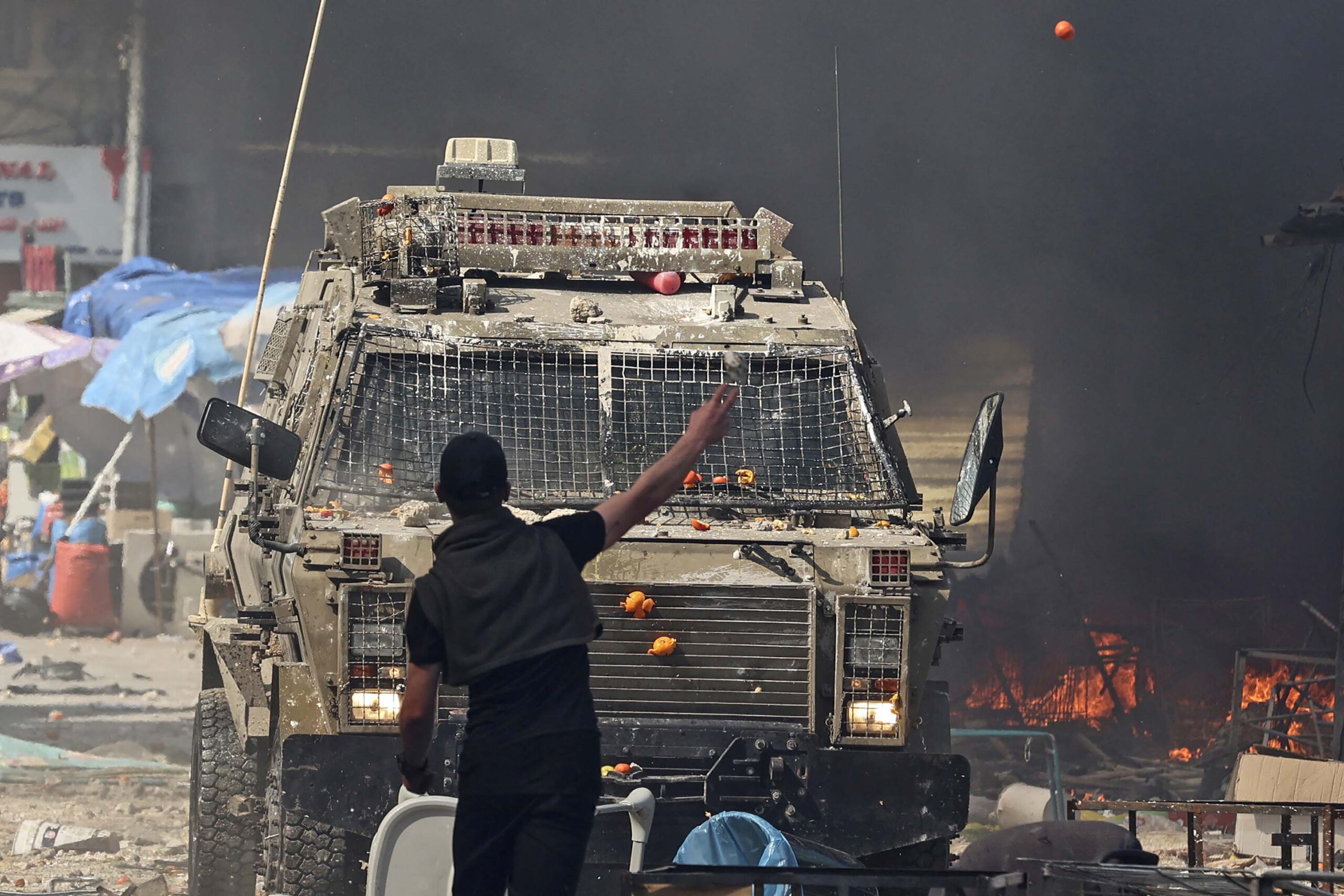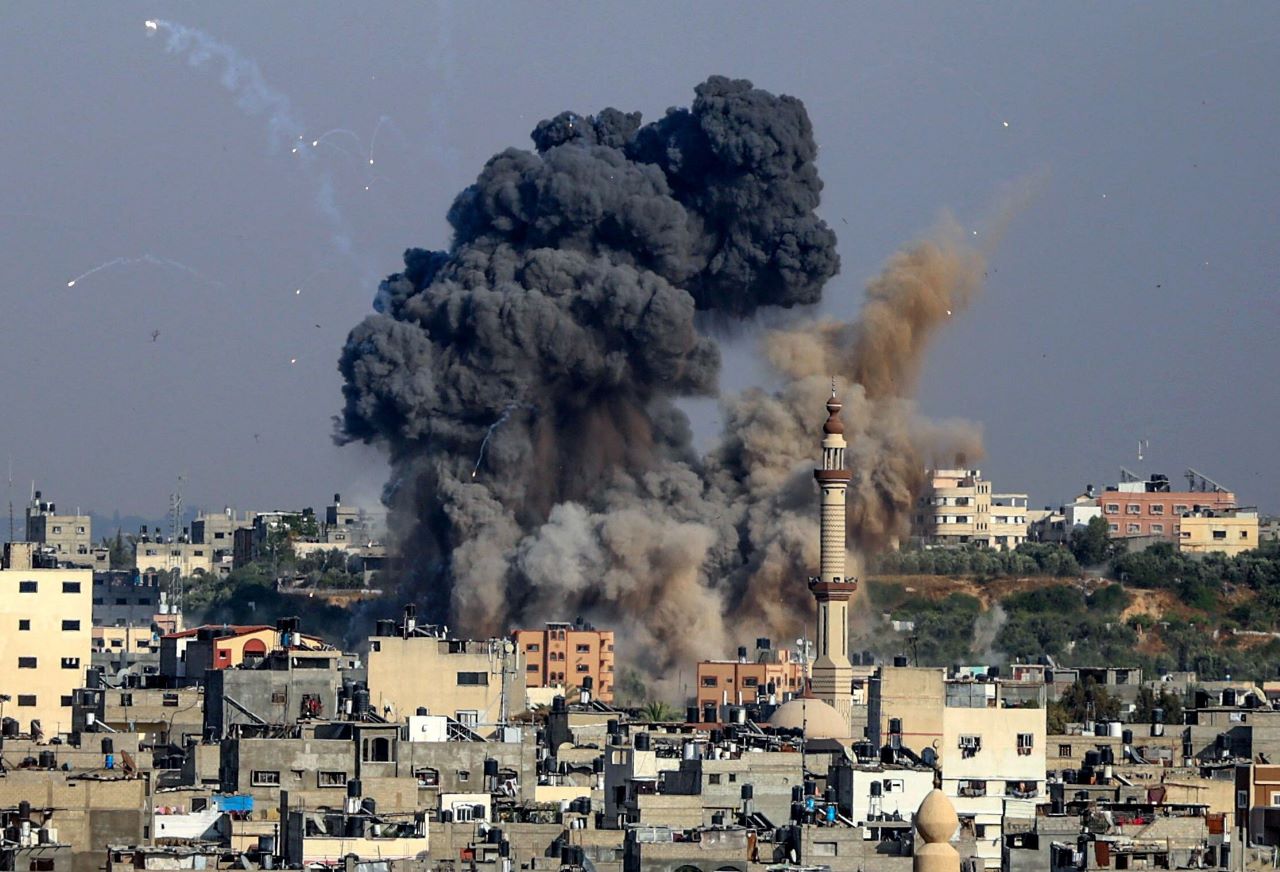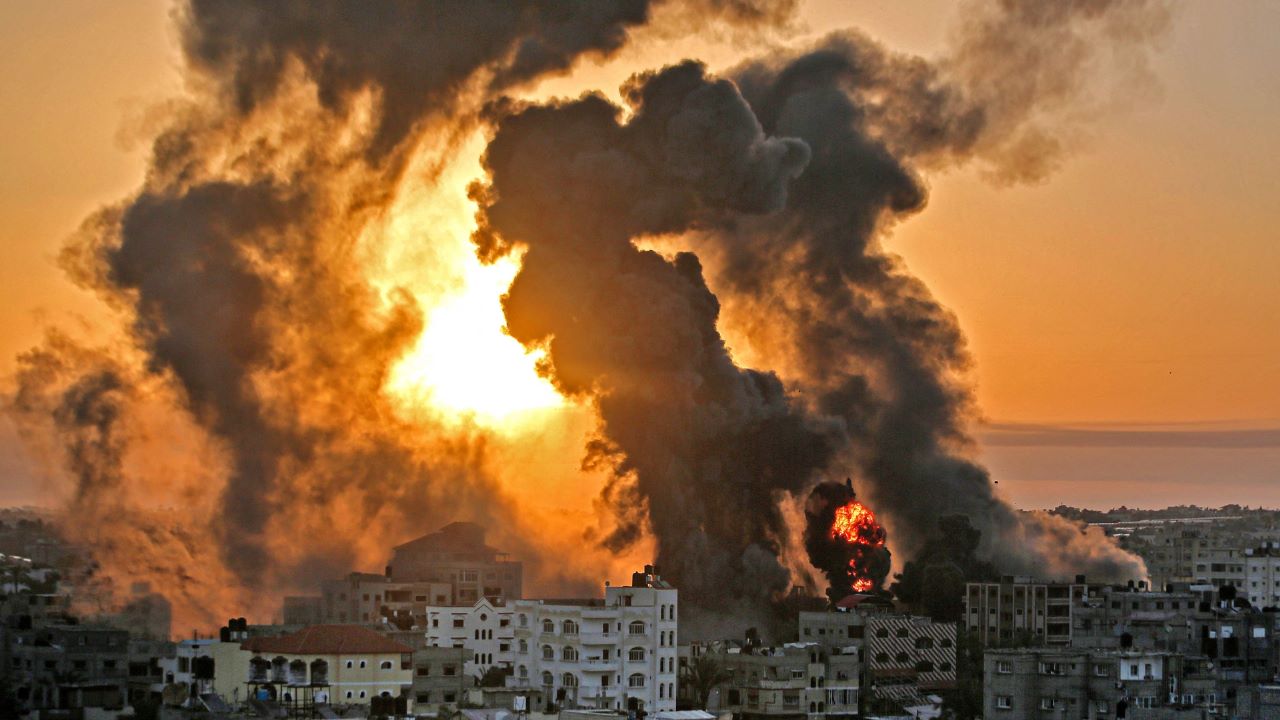After a rocket fire from the coastal enclave on Thursday, Israel said it began airstrikes against alleged weapons storage and manufacturing facilities in Gaza.
The IDF declared that "fighter planes targeted a weapons manufacturing plant" operated by Hamas, the Palestinian militant organization that controls Gaza in the centre of Gaza.
According to the statement, "concurrently, a military installation belonging to the Hamas Terrorist Organization in the northern Gaza Strip, which was also employed as a naval weapons storage warehouse, was targeted."
Five rockets fired from Gaza toward Israeli territory, including the cities of Ashkelon and Sderot, were reportedly intercepted earlier on Thursday, and a sixth missile fell in an open region.

Did you read this?
Following an Israeli military raid on Nablus in the occupied West Bank on Wednesday that left at least 500 people injured, at least 11 Palestinians died due to the airstrikes, according to Palestinian sources on Thursday. According to the two militant factions, two Islamic Jihad commanders and a member of Hamas were among the victims of the Nablus raid.
According to the Palestinian Red Crescent, "our teams dealt with 488 wounded during the occupying troops' onslaught into Nablus, including 103 injuries from live bullets brought to Nablus hospitals." They listed shrapnel wounds and tear gas inhalation as the other injuries. The Palestinian Ministry of Health verified the figures.
The IDF claimed it obtained information on the location of the suspects, which allowed it to conduct the four-hour-long operation in Nablus during the day. The IDF said that they posed an immediate threat and were to blame for the killing of an Israeli soldier.
While praising the Israeli military operation into Nablus the day before, Prime Minister Benjamin Netanyahu promised that Israel would "close accounts with those who attack Israeli citizens and IDF soldiers."
According to Netanyahu, "three terrorists" who "shot and killed Staff Sergeant Ido Baruch last October and were about to carry out other acts against us" were the raid's focus.

The Israeli prime minister, referring to the Israeli Security Agency, the Shin Bet, and the Israel Defense Forces, said, "I would like to praise the ISA and IDF Intelligence for the exact intelligence" that resulted in the operation. Also, he commended "the soldiers who displayed courage and confidence while under fire."
Late on Wednesday, the UN's special envoy for the Middle East peace process expressed his "appalling" dismay at the raid's loss of civilian lives.
The ongoing cycle of violence "seriously disturbs me," Tor Wennesland stated. I implore all parties to avoid taking actions that would exacerbate the tense situation.
'Violent and deadly.'
In the past year, several deadly Israeli military incursions have shaken the occupied West Bank, as tensions between Israel and the Palestinian territories have remained extremely high in a region that has seen much carnage.
According to CNN, an Israeli operation in Jenin in January resulted in the deadliest day for Palestinians in the West Bank in more than a year, with at least ten murdered that day and one dying later from his injuries. The following day, a shooting near a synagogue in Jerusalem claimed the lives of at least seven bystanders, making it one of Israel's bloodiest recent terror acts.
The situation occurs while Benjamin Netanyahu, the Israeli prime minister, heads a cabinet dubbed the most far-right and religious in the nation's history.
According to Netanyahu, who told CNN's Jake Tapper that he had chosen a different strategy, people can become "hung up" on peace talks with the Palestinians.
According to CNN's Hadas Gold, the sights on Wednesday matched those "not seen since the second intifada," or uprising, as tensions between Israeli authorities and Palestinian militants reach a boiling point.
"These figures are some of the highest I've seen in my tenure here," she continued, "even for the last year and a half or so here, that has been a very violent and deadly year."









